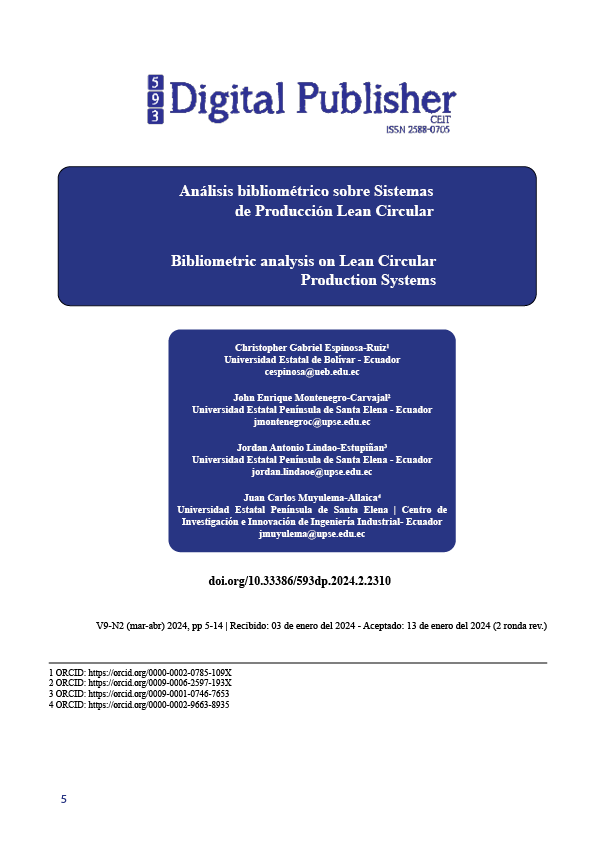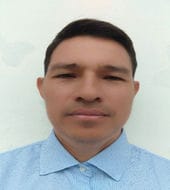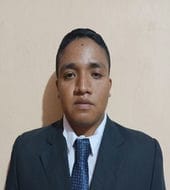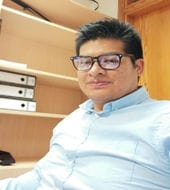Análisis bibliométrico sobre Sistemas de Producción Lean Circular
Contenido principal del artículo
Resumen
La integración de Lean Manufacturing (LM) y Economía Circular (CE) proporciona un enfoque integral, que abarca la sostenibilidad económica, social, política y ambiental en tres áreas clave: pensamiento de proceso, producto y ciclo de vida en las empresas. Los estudios han demostrado una correlación positiva entre LM y EC que tiene lugar dentro de la literatura Lean Circular (LC). El objetivo principal de este estudio es responder a las siguientes preguntas: ¿Cuáles son los países a nivel mundial que han generado un gran aporte científico con respecto a LC en los últimos cuatro años? y ¿Qué organizaciones son las que más interactúan entre sí con el afán de difundir información relevante sobre el LC?. La metodología utilizada incluyó una revisión sistemática de la literatura (RSL). Por lo tanto, existió margen para aplicar una herramienta y técnica de análisis bibliométrico. Con el fin de identificar puntos críticos de investigación, áreas temáticas, temas de tendencia, base de conocimientos, se utilizan para el análisis VOSviewer. Los resultados evidenciaron que los países que más se han comprometido con el tema investigativo son Suecia que es el que mayor aporte ha generado seguido por Italia y Reino Unido. De la misma manera al comparar los países que han generado el mayor número de cita de sus artículos, se determinó que Reino Unido, India y Australia son los países que ocupan los tres primeros lugares. Al realizar la correlación de las organizaciones, se encontraron que son pocas las organizaciones que han generado contenido productivo en términos de documentos publicados sobre LC. Según las publicaciones que se han generado se puede observar que las que más importancia le dan al tema investigativo son las universidades del continente asiático y británico. Finalmente, se destacan las lagunas de investigación y el alcance futuro del campo
Descargas
Detalles del artículo

Esta obra está bajo una licencia internacional Creative Commons Atribución-NoComercial-CompartirIgual 4.0.
1. Derechos de autor
Las obras que se publican en 593 Digital Publisher CEIT están sujetas a los siguientes términos:
1.1. 593 Digital Publisher CEIT, conserva los derechos patrimoniales (copyright) de las obras publicadas, favorece y permite la reutilización de las mismas bajo la licencia Licencia Creative Commons 4.0 de Reconocimiento-NoComercial-CompartirIgual 4.0, por lo cual se pueden copiar, usar, difundir, transmitir y exponer públicamente, siempre que:
1.1.a. Se cite la autoría y fuente original de su publicación (revista, editorial, URL).
1.1.b. No se usen para fines comerciales u onerosos.
1.1.c. Se mencione la existencia y especificaciones de esta licencia de uso.
Citas
Abad-Segura, E., Batlles-Delafuente, A., González-Zamar, M. D., & Belmonte-Ureña, L. J. (2021). Implications for Sustainability of the Joint Application of Bioeconomy and Circular Economy: A Worldwide Trend Study. Sustainability 2021, Vol. 13, Page 7182, 13(13), 7182. https://doi.org/10.3390/SU13137182
Agrawal, R., Wankhede, V. A., Kumar, A., Luthra, S., & Huisingh, D. (2022). Big data analytics and sustainable tourism: A comprehensive review and network-based analysis for potential future research. In International Journal of Information Management Data Insights (Vol. 2, Issue 2). Elsevier B.V. https://doi.org/10.1016/j.jjimei.2022.100122
Ahmed, Z., Mahmud, S., & Acet, D. H. (2022). Circular economy model for developing countries: evidence from Bangladesh. Heliyon, 8(5), e09530. https://doi.org/10.1016/J.HELIYON.2022.E09530
Andrango-Alobuela, M. S., & Arroyo-Morocho, F. R. (2022). Vista de Industria 4.0 y economía circular: revisión de la literatura y recomendaciones para una industria sustentable en Ecuador. https://ciencialatina.org/index.php/cienciala/article/view/1422/1966
Asante, R., Faibil, D., Agyemang, M., & Khan, S. A. (2022). Life cycle stage practices and strategies for circular economy: assessment in construction and demolition industry of an emerging economy. Environmental Science and Pollution Research, 29(54), 82110–82121. https://doi.org/10.1007/S11356-022-21470-W/FIGURES/2
Caldera, H. T. S., Desha, C., & Dawes, L. (2019). Transforming manufacturing to be ‘good for planet and people’, through enabling lean and green thinking in small and medium-sized enterprises. Sustainable Earth 2019 2:1, 2(1), 1–19. https://doi.org/10.1186/S42055-019-0011-Z
Colijn, I., Fraiture, F., Gommeh, E., Schroën, K., & Metze, T. (2022). Science and media framing of the future of plastics in relation to transitioning to a circular economy. Journal of Cleaner Production, 370, 133472. https://doi.org/10.1016/J.JCLEPRO.2022.133472
Dewick, P., de Mello, A. M., Sarkis, J., & Donkor, F. K. (2022). The puzzle of the informal economy and the circular economy. Resources, Conservation and Recycling, 187, 106602. https://doi.org/10.1016/J.RESCONREC.2022.106602
Fernandes-Martins, K., Teixeira, D., & de Oliveira Corrêa, R. (2022). Gains in sustainability using Voluntary Sustainability Standards: A systematic review. In Cleaner Logistics and Supply Chain (Vol. 5). Elsevier Ltd. https://doi.org/10.1016/j.clscn.2022.100084
Figge, F., Dimitrov, S., Schlosser, R., & Chenavaz, R. (2022). Does the circular economy fuel the throwaway society? The role of opportunity costs for products that lose value over time. Journal of Cleaner Production, 368, 133207. https://doi.org/10.1016/J.JCLEPRO.2022.133207
Fuentes Barrera, G. A., Gabarrell i Durany, X., Rieradevall Pons, J., & Guerrero Erazo, J. G. (2021). Trends in global research on industrial parks: A bibliometric analysis from 1996–2019. In Heliyon (Vol. 7, Issue 8). Elsevier Ltd. https://doi.org/10.1016/j.heliyon.2021.e07778
Hariyani, D., & Mishra, S. (2022). Drivers for the adoption of integrated sustainable green lean six sigma agile manufacturing system (ISGLSAMS) and research directions. Cleaner Engineering and Technology, 7, 100449. https://doi.org/10.1016/J.CLET.2022.100449
Hariyani, D., Mishra, S., Sharma, M. K., & Hariyani, P. (2022). Organizational barriers to the sustainable manufacturing system: A literature review. Environmental Challenges, 9, 100606. https://doi.org/10.1016/J.ENVC.2022.100606
Kolade, O., Odumuyiwa, V., Abolfathi, S., Schröder, P., Wakunuma, K., Akanmu, I., Whitehead, T., Tijani, B., & Oyinlola, M. (2022). Technology acceptance and readiness of stakeholders for transitioning to a circular plastic economy in Africa. Technological Forecasting and Social Change, 183, 121954. https://doi.org/10.1016/J.TECHFORE.2022.121954
Kumar, N., Shahzeb Hasan, S., Srivastava, K., Akhtar, R., Kumar Yadav, R., & Choubey, V. K. (2022). Lean manufacturing techniques and its implementation: A review. Materials Today: Proceedings, 64, 1188–1192. https://doi.org/10.1016/J.MATPR.2022.03.481
Malek, J., & Desai, T. N. (2021). A framework for prioritizing the solutions to overcome sustainable manufacturing barriers. Cleaner Logistics and Supply Chain, 1, 100004. https://doi.org/10.1016/J.CLSCN.2021.100004
Muyulema Allaica, J. C., & Ruiz-Puente, C. (2022). Framework proposal for the design of lean circular production systems based on case studies. DYNA, 97(5), 515–521. https://doi.org/10.6036/10540
Naseer, M. N., Zaidi, A. A., Dutta, K., Wahab, Y. A., Jaafar, J., Nusrat, R., Ullah, I., & Kim, B. (2022). Past, present and future of materials’ applications for CO2 capture: A bibliometric analysis. Energy Reports, 8, 4252–4264. https://doi.org/10.1016/j.egyr.2022.02.301
Nyika, J., & Dinka, M. O. (2022). Integrated approaches to nature-based solutions in Africa: Insights from a bibliometric analysis. Nature-Based Solutions, 2, 100031. https://doi.org/10.1016/j.nbsj.2022.100031
Papilo, P., Marimin, M., Hambali, E., Machfud, M., Yani, M., Asrol, M., Evanila, E., Prasetya, H., & Mahmud, J. (2022). Palm oil-based bioenergy sustainability and policy in Indonesia and Malaysia: A systematic review and future agendas. Heliyon, 8(10). https://doi.org/10.1016/j.heliyon.2022.e10919
Rejeb, A., Zailani, S., Rejeb, K., Treiblmaier, H., & Keogh, J. G. (2022). Modeling enablers for blockchain adoption in the circular economy. Sustainable Futures, 4, 100095. https://doi.org/10.1016/J.SFTR.2022.100095
Schmitt, T., Wolf, C., Lennerfors, T. T., & Okwir, S. (2021). Beyond “Leanear” production: A multi-level approach for achieving circularity in a lean manufacturing context. Journal of Cleaner Production, 318, 128531. https://doi.org/10.1016/J.JCLEPRO.2021.128531
Wang, Z., Jv, Y., Shou, M., & Peng, G. (2022). Quantitative evaluation of the green production and consumption policies in China. Chinese Journal of Population, Resources and Environment, 20(2), 199–208. https://doi.org/10.1016/J.CJPRE.2022.06.010





